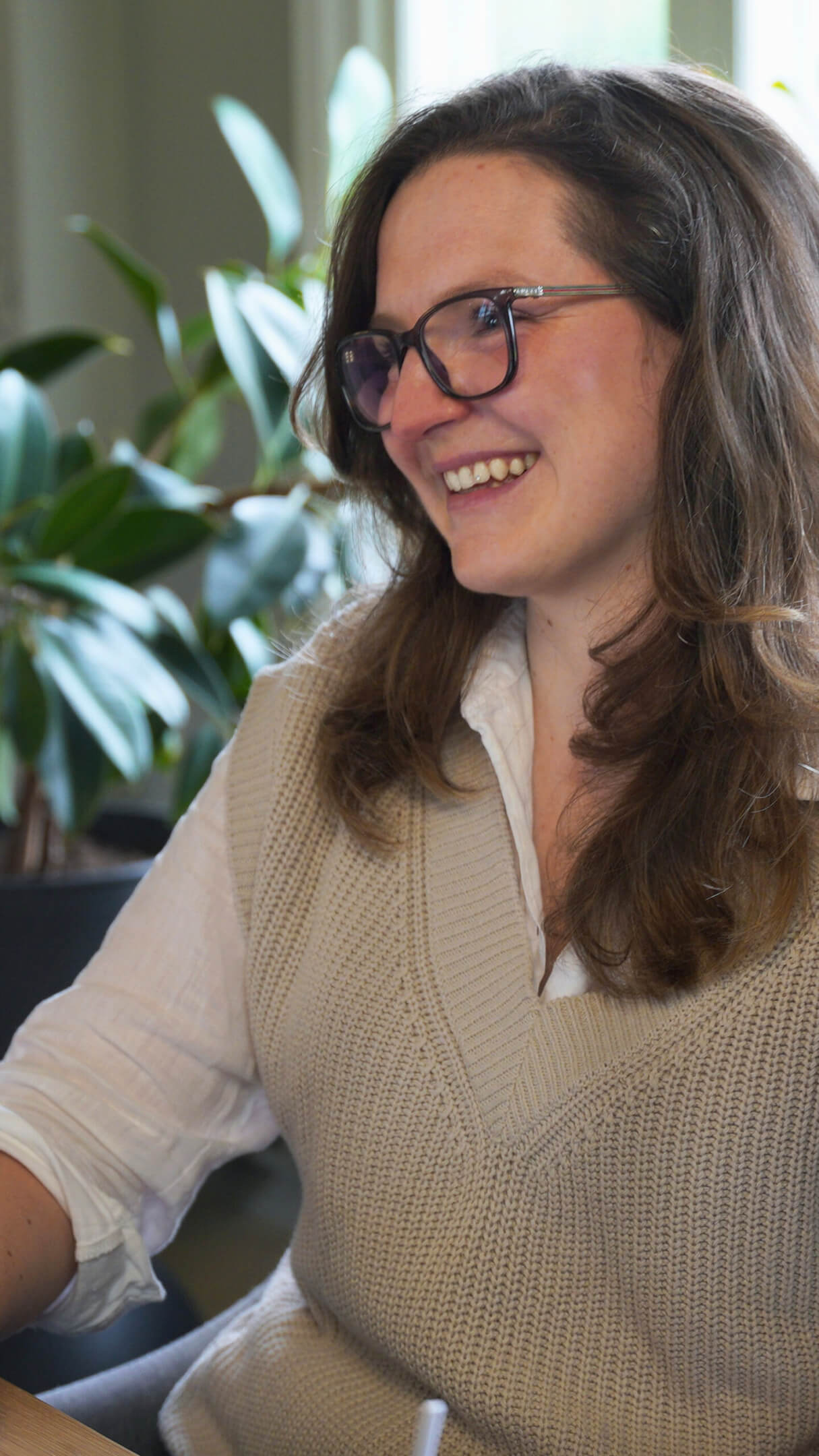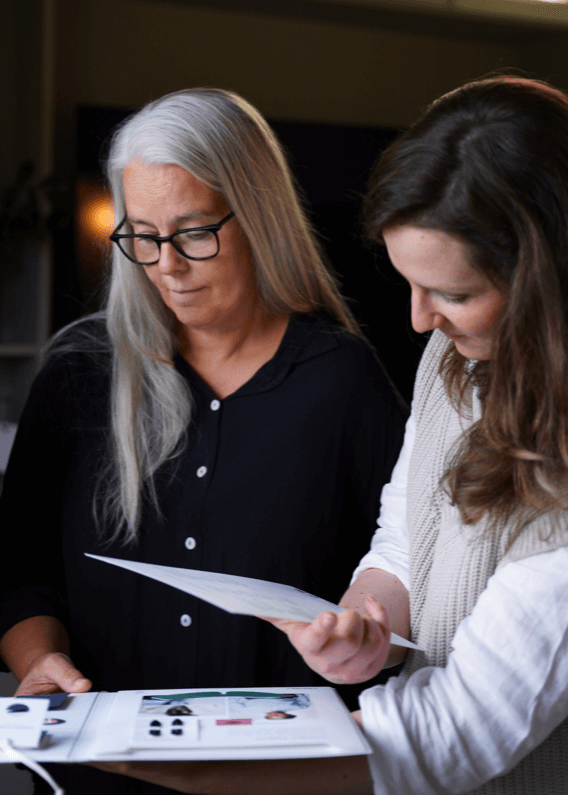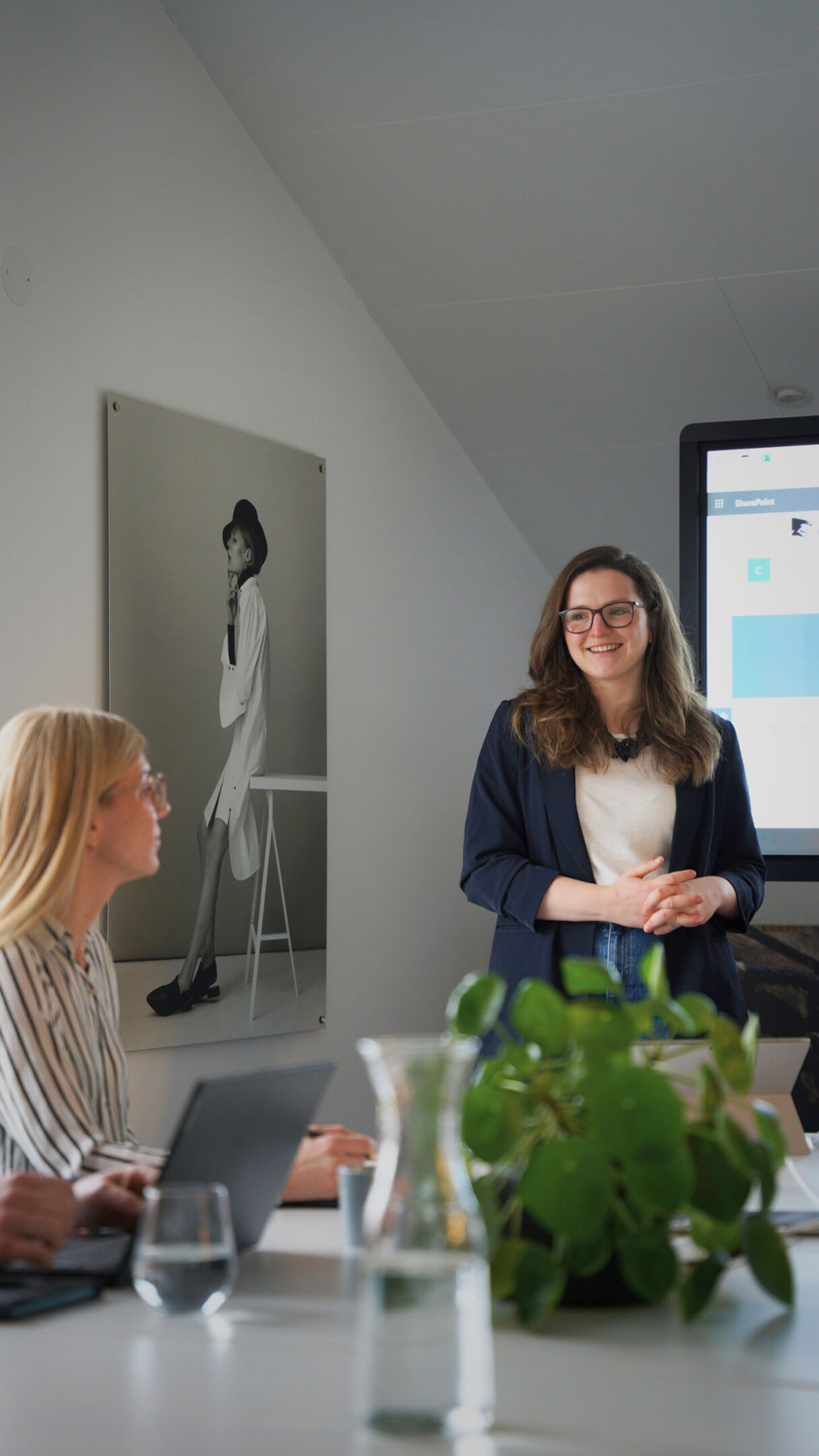
Part of a series:
Inside the Specialist Departments
The role of compliance in labelling
A Conversation with Nilörn’s Global Compliance Specialist Jennifer Elze.
Welcome to Inside the Specialist Departments, a series that spotlights the experts behind innovation, sustainability, and compliance at Nilörn. In this first piece, we explore the important role of the Compliance department at Nilörn and how it ensures the company’s products and services align with global regulations. The department also plays a key part in supporting clients and the broader textile industry on their journey towards circularity. We spoke with Jennifer Elze, Nilörn’s Global Compliance Specialist to learn about her role, area of expertise and what the future holds for compliance in labelling.
From textile and clothing management to global compliance
With a Master’s degree in Textile Management from the Swedish School of Textiles in Borås and roots in Germany, Jennifer Elze has centered her career around the textile industry. Her journey reflects a blend of international academic pursuits and diverse professional roles, all of which have shaped her expertise in compliance.
“I call myself a textile professional with roots in Germany.” Jennifer says “When reflecting on my
experiences and decisions, it feels natural for me to work in compliance, within the textile industry. An unexpected, yet much important end of the value chain – and as part of a great team.”
Jennifer’s journey into textiles began with a transformative year in Wales. “That experience solidified my decision to study Textile and Clothing Management,” she explains. Her Bachelor studies in Germany led to an internship in Bangladesh, and connected her with the Swedish School of Textiles in Borås, where she earned her Master’s degree with a specialisation in Value Chain Management.
Her career spans roles in customer service, sales, translations, and product development. However, her entry into the shoe care industry introduced her to chemical and labelling compliance, laying the foundation for her current role.
“It was challenging but also super interesting – it shaped my approach to research, make use of information, problem-solving, and collaboration – all of which prepared me for the role I have today.”
What does compliance at Nilörn involve?
At Nilörn, Jennifer’s role as Global Compliance Specialist involves ensuring the company and its clients are prepared for the constantly shifting landscape of legal requirements.
“Basically, I need to know of and monitor any legal changes that concern the labelling of textile products and packaging, including obligations in connection to the labelling that will affect both our clients and Nilörn”, she explains. “This means I spend a lot of time conducting research and keeping a close eye on developments at both regional and global levels.”
In addition to research and monitoring, Jennifer also actively participates in industry organisations and working groups focused on legislative changes in areas such as CSR and sustainability. “The information we gather is shared internally and externally to ensure that Nilörn and our clients remain informed and compliant. Open discussions with clients are also a key part of the job, helping them navigate their specific challenges.”



Labels serve as a vital medium for sharing important information with consumers, authorities, and other business partners across the value chain.
Why is compliance critical in labelling?
While labelling and compliance may not always be the focal point in the textiles industry, Jennifer underscores their increasingly important role. “Labelling and packaging are crucial touchpoints in a product’s lifecycle,” she explains. “They serve as a vital medium for sharing important information with consumers, authorities, and other business partners across the value chain. This information ensures the safe handling, use, disposal, and movement of goods. Without them, businesses cannot operate efficiently or responsibly.”
For Jennifer, it’s the ongoing challenges and changing regulations that make the field exciting. “New rules are constantly being introduced, and each one requires further exploration – in short, it never gets boring.“
What trends are transforming the compliance landscape?
The compliance landscape is evolving rapidly, and Jennifer sees plenty of changes on the horizon.
“Generally, it is important to aim for long-term compliance and not just short-term solutions. Everything that is done today should contribute to the aim of a circular economy”.
She identifies several key trends reshaping how businesses approach labelling and packaging in response to changing regulations. One major trend is the rise of Extended Producer Responsibility (EPR) “As EPR frameworks are implemented worldwide, businesses must ensure they comply to maintain seamless operations,” Jennifer says. This shift is pushing companies to take full responsibility for the lifecycle of their products, including disposal and recycling.
Packaging and material innovation is another area undergoing significant change.
Regulations like the EU Packaging and Packaging Waste Regulation are driving bus-inesses to rethink their packaging design and material choices.
“This will create demand for recycled materials and reusable yet recyclable packaging designs that minimise weight and empty space while still fulfilling their function,” Jennifer notes. This trend blends compliance with sustainability, reducing waste across the entire packaging lifecycle.
Equally transformative is the rise of digital labelling. “Digital labelling will be a fact. This is currently addressed in multiple legislative pieces, not only in the EU.” Jennifer explains. Digital labels will change how product information is communicated, offering a more dynamic and accessible way to provide details to consumers, businesses, and regulatory bodies.
As a result – the need for data handling and product knowledge is growing. “Businesses must excel in tracking every detail of a product’s lifecycle, ensuring accurate information for part-ners, consumers, and authorities,” Jennifer says.
“Clear, truthful and verifiable communication on labels is becoming essential, focusing on verifiable claims that consumers can understand and that are relevant and as specific as possible,” Jennifer emphasises. As consumers demand transparency, businesses must ensure compliance with rules for Green Claims and start revising current communication strategies.
Finally, Jennifer stresses the need for colla-boration and innovation to proactively prepare for future regulations, like the EU’s Ecodesign for Sustainable Products Regulation and the Digital Product Passport. As Jennifer puts it;
“The path towards a circular economy will require rethinking on multiple levels, business structures, products, services – a challenge that everyone faces.”
How does Nilörn foster collaboration and innovation in compliance?
As collaboration is key to making compliance embedded in the textile industry’s labelling and packaging processes – It’s equally true for making it an integral part of Nilörn’s services. Jennifer works closely with other departments, conducting training sessions, participating in cross-departmental projects, and providing tools and resources through the company’s digital platforms.
To support Nilörn’s clients, Jennifer is deeply involved in the launch of a new webinar series in 2025 called Knowledge Hub.
“There’s a growing interest in accessing expert knowledge and having active discussions. Our webinar series will be a forum for sharing insights, recommendations, and solutions to the challenges our clients are facing.”
Given the rapid changes in the compliance field, Jennifer believes that compliance will continue to grow in importance. As regulatory shifts unfold, compliance experts will play an essential role in guiding businesses through these changes. “Everything that is done today should contribute to the aim of a circular economy,” Jennifer concludes. “It’s exciting to be a part of this process and to see how legislation evolves to enable such change.”
This article is part of our series spotlighting Nilörn’s specialist departments. Join us next time as we highlight our expertise within the Sustainability Department.
